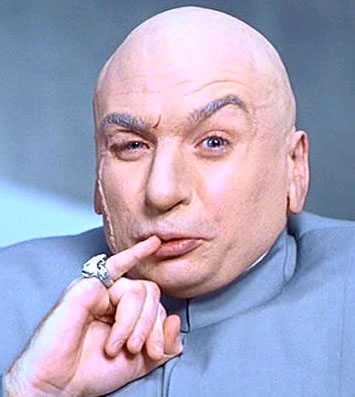Serendip is an independent site partnering with faculty at multiple colleges and universities around the world. Happy exploring!
Notes Towards Day 13: Selection!

Class Summary by Molly
![]()
Normal.dotm 0 0 1 283 1617 Bryn Mawr College 13 3 1985 12.0 0 false 18 pt 18 pt 0 0 false false false
I. coursekeeping
naming/notetaking (jrlewis & Molly)
we’ve showed up on Jen’s blog, w/
links to jrf's & rmeyers' summaries…!
Before you leave for break, post a mid-semester evaluation
in the course forum: WHAT'S WORKING?
WHAT NEEDS WORKING ON?
Wai Chee Dimock will join us, in our first class after break:
RE-READ "Genres as Fields of Knowledge"
('07 PMLA article w/ which we began this course)
She's done three books on transnational American/world
literature(s); her current book project is on genre-->
A Map of Kin and Kind: Epic, Lyric, Novel
Besides visiting our class, she'll be giving a public talk in the Ely Rm,
7:30 p.m. that Tuesday, on Literature as Public Humanities -->
poster-distribution to dorms?
YOU HAVE TO COME!!!!
II. And after that?...let's get on w/ the process of deciding!
trying this now from the other direction: bottom up/texts/visuals--
w/ the hope of finding a form/organizing logic/rationale for study
Choosing a range of genres-- classic novel/graphic novel/science
fiction film (drama? memoir?) that explore a single theme; possibilities are parody/time travel/villainy/mystery/identity
1. Parody of Genres: Making Fun of the Forms
(and so Clarifying What/How They Do What They Do?)
Jen’s Digital Humanities Manifesto
aseidman: emphasizes/exaggerates/draws attention to that
genre's particularly obvious and sometimes humorous aspects
Shayna: in studying parodies I feel that
one can better understand the "parodied."
Linda Hutcheon, A Theory of Parody:
The Teachings of 20th Century Art Forms (1985):
particularly modernist "symptom and critical tool"
self-reflexive/questioning legitimacy/didactic form;
major mode of formal/thematic construction
(rather than parasitic and derivation, seen as
a challenge to genius, originality, individuality)
![]()
parody of medieval/baroque emblem form:
picture, title, motto don't create harmonious totality of meaning
(also rebuttal of Le Corbusier's use of a pipe
as the symbol of plain functional design)
Possibilities--
classic novels:
Miguel de Cervantes, Don Quijote (1605-1615: archetypal parody of effects of reading; cfs Renaissance w/ modern modes of knowing; non-U.S.-centric )
Jonathan Swift, Gulliver's Travels (1726 satire
on human nature/parody of "travellers' tales")
Lewis Carroll, Alice in Wonderland /Through the Looking Glass
(late Victorian parody of schooling/realism)
contemporary novel:
David Shields, Reality Hunger: A Manifesto
(parody of contemporary novel form)
comics/graphic novels:
Al Capp, The Life and Times of the Shmoo (1949; creator of Li'l Abner)
Chris Ware, Jimmy Corrigan: The Smartest Kid on Earth
(2000 parody of superman comics)
Neil Gaiman, Mr. Punch: The Tragical Comedy or Comical Tragedy (1995)
films:
Charlie Kauffman, Synecdoche, NY (2008 film parody of representation
--part for the whole--generally; of film-making in particular)
Monty Python's Life of Brian (1979)
__________________
![]()
2. Time Travel [articulate logic of relationship to genre
study-->distancing effect? inherently science fiction?]
classic novel:
Mark Twain, A Connecticut Yankee in King Arthur's Court (1889)
Online archive of Mark Twain's work
H.G. Wells, The Time Machine (1895)
graphic novel:
Neil Gaiman's Marvel 1602
(superheroes transplanted to the Elizabethan era)
films:
Shane Carruth, Primer (2005 sci fi film re: accidental discovery of means of time travel)
Audrey Niffenegger, The Time Traveler's Wife (novel and 2009 movie)
The Butterfly Effect (2004: "change one thing; change everything")
other distinctive sci fi films??
________________

3. Villainy [also needs a rationale/relation to genre-study??]
classic texts:
Shakespeare, Othello (1603)
Fyodor Dostoevsky, Crime and Punishment (1865)
graphic novels:
Watchmen (1986-87 comic book series by Alan Moore; 2009 film)
Neil Gaiman, something from The Sandman series
films:
O (2001 film modernization of Othello)
Stephen King, Misery (psychological horror novel, and 1990 film)
___________
![]()
5. Mystery [a far more focused-and-derivative list: too narrow, or...?]
Arthur Conan Doyle, "The Adventures of Sherlock Holmes, " "The Hound of the Baskervilles," etc. (1896f).
Agatha Christie, [novels featuring] Miss Marple (1930f)
Laurie King, The Beekeeper's Apprentice (1994; first book in young adult series, featuring first meeting between fifteen-year-old Mary Russell and Sherlock Holmes)
They Might Be Giants (1971 film with Joanne Woodward and George C. Scott, who imagines himself to be Sherlock Holmes after his wife's death).
Blake Edwards' Pink Panther series (1963f)
online 'choose your own adventure'

5. Identity [least articulated topic so far...]
films:
Spike Jonze, Being John Malkovich (1999)
Christopher Nolan, Memento (2000)
contemporary fiction:
Cormac McCarthy, The Road (2006 post-apocalyptic novel)
Dean Koontz, The Funhouse (1994)
Shirley Jackson, We Have Always Lived in the Castle (1962)
Graphic Novels:
Craig Thompson, Blankets (2003 coming of age autobiography)
Art Spiegelman, Maus (1986f. father's biography of surviving Holocaust)
Marjane Satrapi, Persepolis (graphic novel and 2007 animated film);
cf. 1001 Nights
none of these proposals are doing very well in the "world
literature" department...everything's very space-specific
-----------
get again into (new!) groups to complete the syllabus;
choose the texts you want to read/view, then figure
out/articulate the logic of your selection....
Th, Mar. 18
T, Mar. 23
Th, Mar. 25
5 p.m. Fri, Apr. 2: 4 pp. of blogging due about ...?
T, Apr. 6
Th, Apr. 8
T, Apr. 13
Th, Apr. 15
T, Apr. 20
5 p.m. Fri, Apr. 23: 4 pp. of blogging due about ...?
12:30 p.m. Fri, May 14: 12-pp. final project,
portfolio and self-evaluation due
do you want to get the books yourselves,
or shall I order 20 copies of each??
_____
Class summary by Molly


